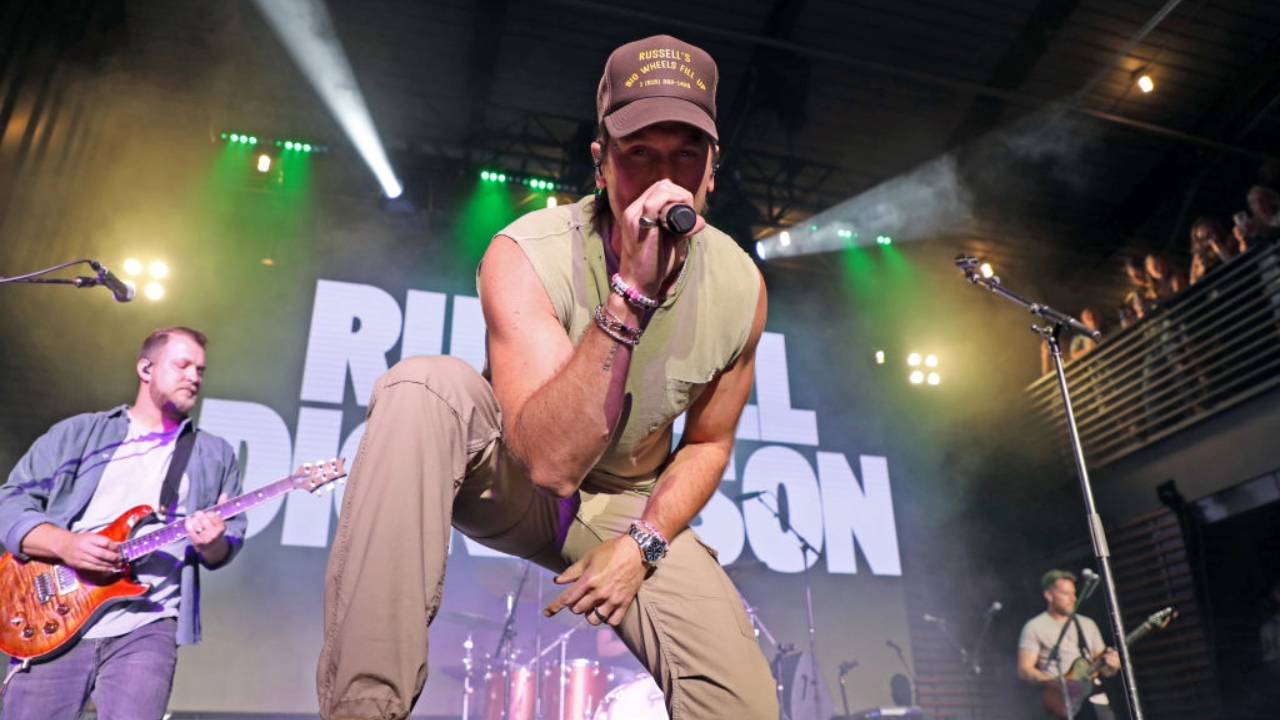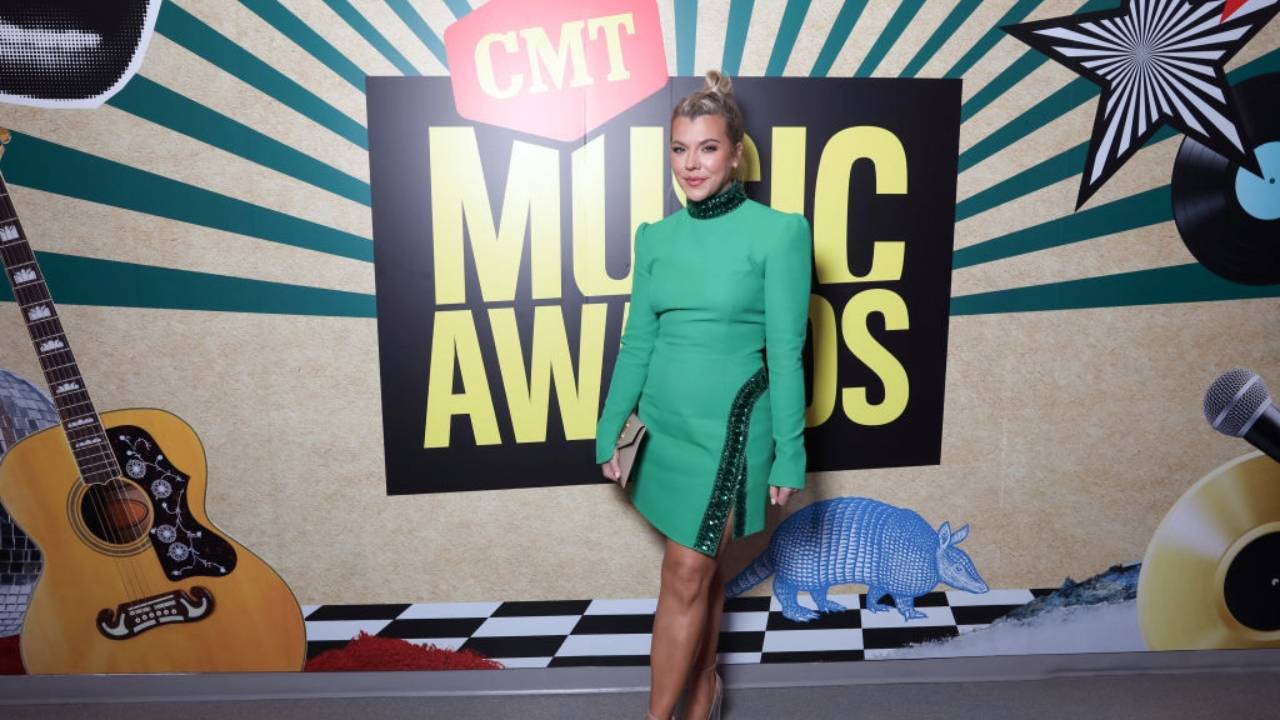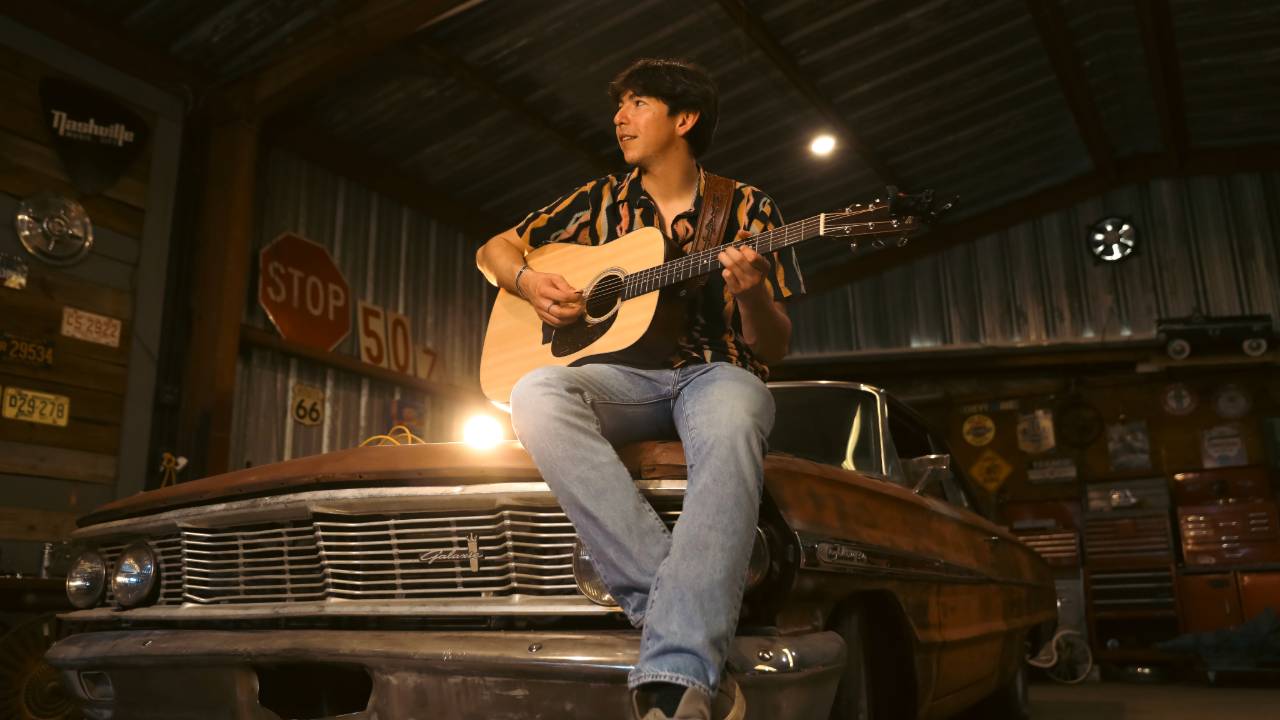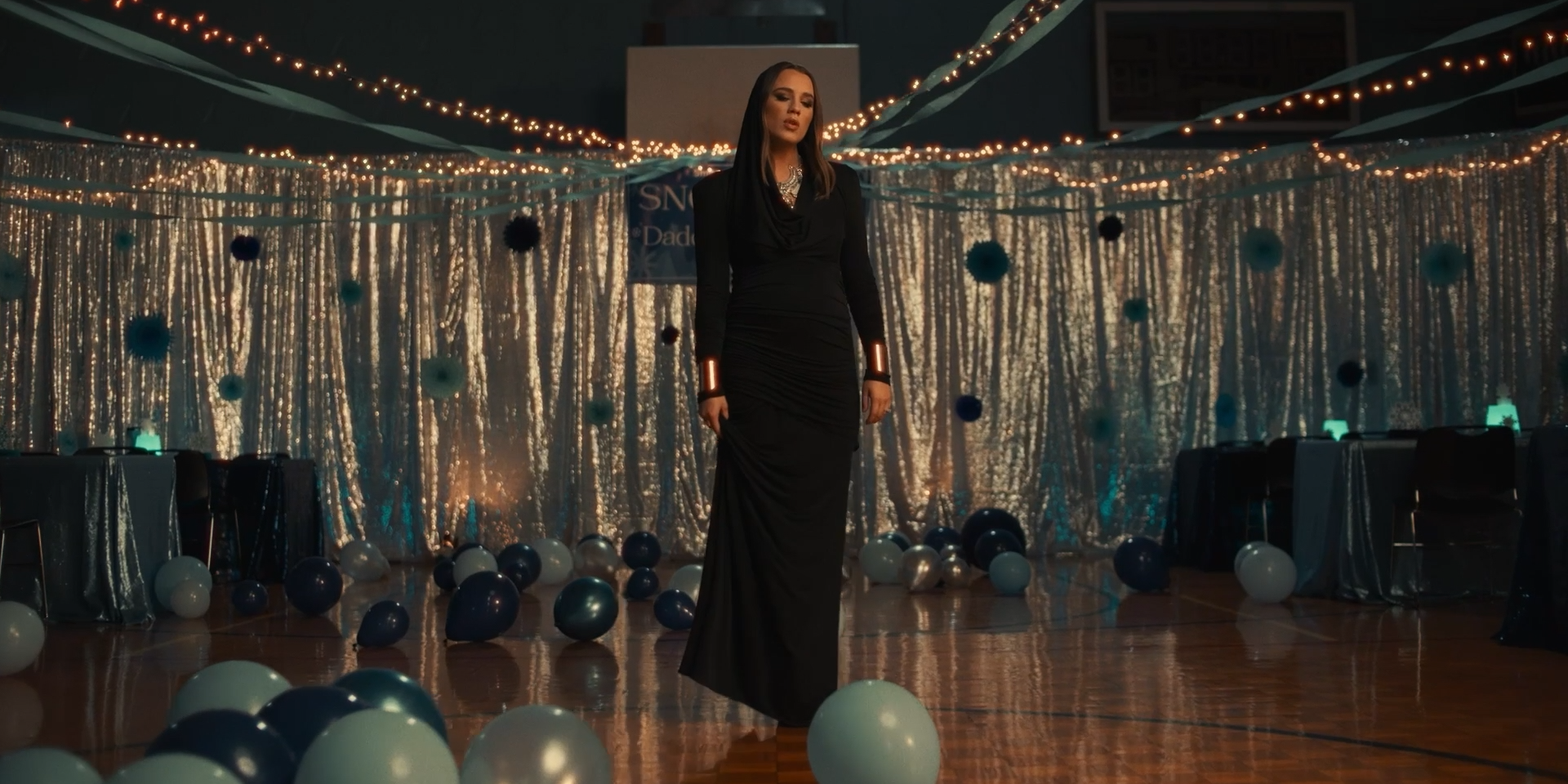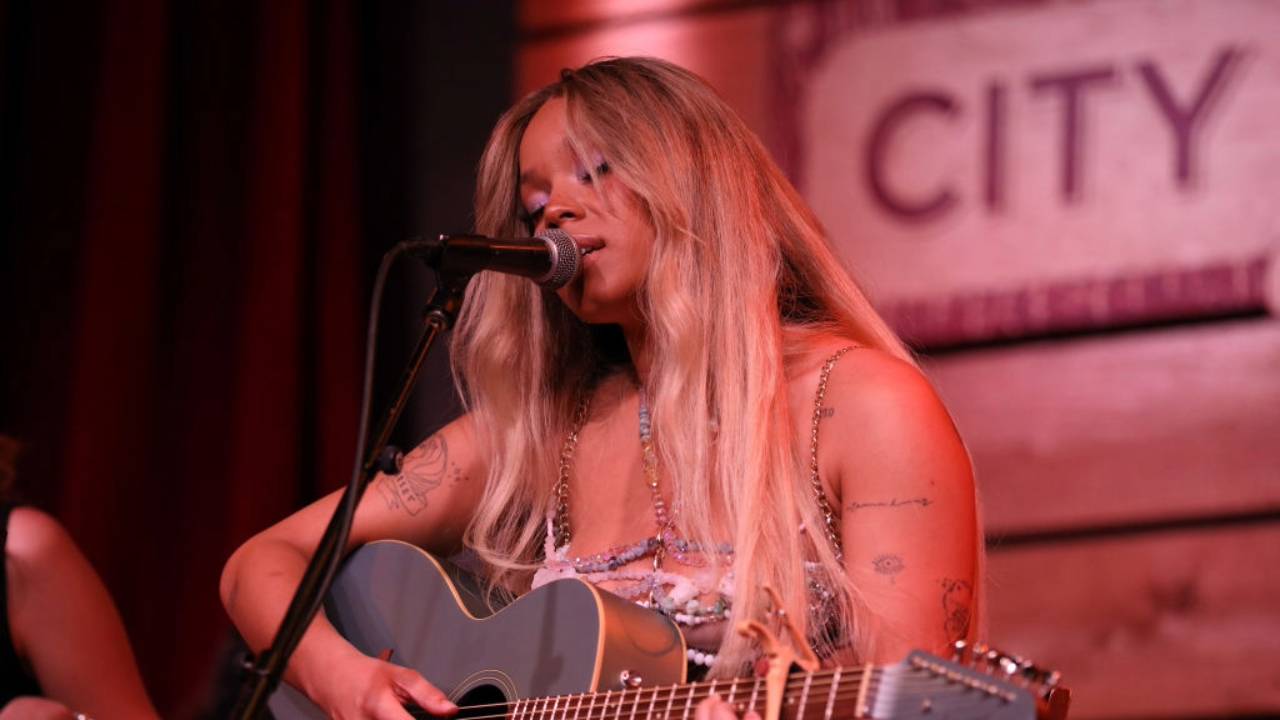Son of Bluegrass: Ronnie McCoury, Mandolinist for the Great Del McCoury Band, Releases Debut Solo CD
Bill Monroe, the late "Father of Bluegrass," called Ronnie McCoury "Del's boy."
Casual bluegrass listeners might refer to McCoury as "Del's boy" too. Ronnie's dad is bluegrass favorite Del McCoury, whose resume includes a stint as a member of Monroe's Blue Grass Boys. Ronnie plays mandolin in the Del McCoury Band.
Another of Del's boys, Rob, plays banjo. With three McCourys in the group, the band has been dubbed "The First Family of Bluegrass," both because they are a family and because when it comes to bluegrass, many argue that there is no better band working today.
The "Del's Boy" tag fits Ronnie, 33, for another reason. Though he's a crack instrumentalist and winner for seven years running of the International Bluegrass Music Association's mandolin player of the year honor, when he's on the bandstand Ronnie usually stands in his dad's shadow. He drives the band with his mandolin chops and seldom calls attention to himself.
Now comes Heartbreak Town, Ronnie's first solo album. That he has stepped from the shadow into the spotlight will not surprise fans who have watched Ronnie come into his own as an artist over the past two decades.
Released May 2 on Rounder Records, Heartbreak Town showcases not only Ronnie's fierce mandolin playing but also his singing, songwriting, band leading, producing and arranging talents.
"It was good for me to do this album," the affable musician says during a recent phone interview from his Nashville home. "It's healthy for me. It gives me a chance to step out and do what I do."
Not straying far from home, Heartbreak Town is built on the foundations of Ronnie's work with his father. Del turns up on 7 of the album's 13 tracks. "Somebody's Gonna Pay," "When the Hurt's Talkin'" and the instrumental "Glen Rock" feature the full Del McCoury Band lineup of Del, Ronnie, Rob, fiddler Jason Carter and bassist Mike Bub. Other tracks utilize the talents of master pickers such as Jerry Douglas, David Grisman, Bela Fleck, Stuart Duncan, Gene Wooten and David Grier.
Father takes a back seat to son on Heartbreak Town, but Ronnie sounds a lot like his dad. That's a good thing for the younger singer, considering Del is celebrated widely in the bluegrass world as the epitome of the high lonesome sound.
Ronnie says the vocal similarities are not intentional.
"It's purely natural," he explains. "I open my mouth and I sound like him. Singing comes more natural to my dad, though. I didn't start singing until I was 17 or 18. It's the hardest thing I've ever tried to do. It's easier for me to play the instrument. People who hear the record will either say 'This guy is good,' or ' Gosh, go back to playing the mandolin.'"
Raised in rural Pennsylvania near Gettysburg, Ronnie attended his first bluegrass festival when he was six weeks old. He briefly took violin lessons in grade school and picked up the mandolin in his early teens.
"When I was 9 I saw Marty Stuart," Ronnie says. "He was this young mandolinist -- about 17 -- surrounded by all these older guys in a bluegrass band, Lester Flatt and Nashville Grass. I thought he was cool, and I thought if he could do it, maybe I could do it. That same year Bill Monroe came to our house, which got me thinking about playing mandolin, too.
"Right around Christmas time in my 13th year, my dad played the Lincoln Center in New York City during a one-night bluegrass festival featuring Bill Monroe and others. I went along with my dad on that trip. I must have had the bug by that time. Everything clicked together when I saw Bill Monroe that night. I knew that's what I wanted to do -- play the mandolin. A week later, my dad's mandolin was repaired and I began practicing. That was December. Six months later, on May 28, 1981, I performed on stage with with my dad for the first time. I've missed two shows since. Once for wisdom teeth and once for my son's birth."
Monroe is the benchmark by which the work of every mandolin player is measured, and Ronnie has as solid a grasp of Monroe as any player around.
"When I picked up the mandolin, I wanted to learn all of Bill Monroe's stuff," Ronnie recalls. "So, that's what I did. I don't read music, I learned everything by ear. I started learning all his breaks. I mainly learned from his early recordings, when he had a lot of fire in his playing."
Ronnie learned some tricks from the Father of Bluegrass firsthand, before Monroe's death in 1996. They were often booked at the same bluegrass festivals. After Ronnie finished sets with his dad, he watched Monroe play, occasionally joining him on stage.
"I was 14 the first time I went to his Bean Blossom festival," Ronnie recalls. "I was standing backstage, peeping around the corner watching him play his Saturday night finale. He walked over and handed me his mandolin. I was scared to death. He said, 'Come out here, boy.' I went out and played 'Blue Moon of Kentucky' and 'Uncle Pen.'"
As they got to know each other better over the years, Ronnie began visiting Monroe's home. He played on one of his last recording sessions.
"I never took a lesson from him, and I never really asked questions," Ronnie says. "Just being able to watch him, to see how he did things, was a lesson for me, a great way to learn."
Del, too, learned from the bluegrass patriarch. He played with Monroe's Blue Grass Boys in the early 1960s before stepping out on his own to lend his mountain tenor to a succession of bands, most notably the Dixie Pals and his current band.
The former Pennsylvania sawmill worker, who worked day jobs to support his family, moved his wife and kids to Nashville in 1992 to concentrate on music full-time.
Ronnie, in his mid-20s by then, knew he wanted to make music his career, too.
"My high school buddies all went to college and I didn't," he says. "When they all left for college, I knew that I had to get serious about [my future]."
Once in Nashville, Ronnie began swapping licks with some of Music City's best acoustic musicians. In addition to his work with the Del McCoury Band, the mandolinist began honing his chops at picking parties. He also played every Tuesday for five years at The Station Inn, the city's best bluegrass venue, with a makeshift band called The Sidemen. Some of the players appear on Heartbreak Town.
Nashville's emphasis on songwriting inspired him to craft original songs. Ronnie co-wrote the title track of the Del McCoury Band's much-lauded 1996 CD, The Cold Hard Facts. He also penned nine of the songs on his debut solo billing. "You can't help it, living in this town," he reasons. "There is a songwriter on every corner -- a great songwriter on every corner. It really makes you want to write, to come up with something meaningful.
"The songs on Heartbreak Town have been harboring for quite a while. These songs have been piling up since I first came to town. I was looking for a way to get them out."
Ronnie began cutting tracks for the album three years ago, before he and wife Allison were busy with two small boys.
While committed to the Del McCoury Band, Ronnie wants to make more solo albums. His two-album commitment to Rounder Records is complete. In 1995, he and his brother split duties on a Rounder album simply titled Ronnie & Rob McCoury.
Last year, the Del McCoury Band backed country renegade Steve Earle on his first all-bluegrass project, The Mountain. Ronnie also collaborated with David Grisman to produce Bluegrass Mandolin Extravaganza, a double-disc collection featuring fellow mandolin luminaries Bobby Osborne, Jesse McReynolds, Frank Wakefield, Buck White, Sam Bush and Ricky Skaggs.
"I'm really fortunate," Ronnie concludes. "My dad has been respected for many years in the business and I've always been around great musicians that I have been able to watch and learn from. It's quite a life."
